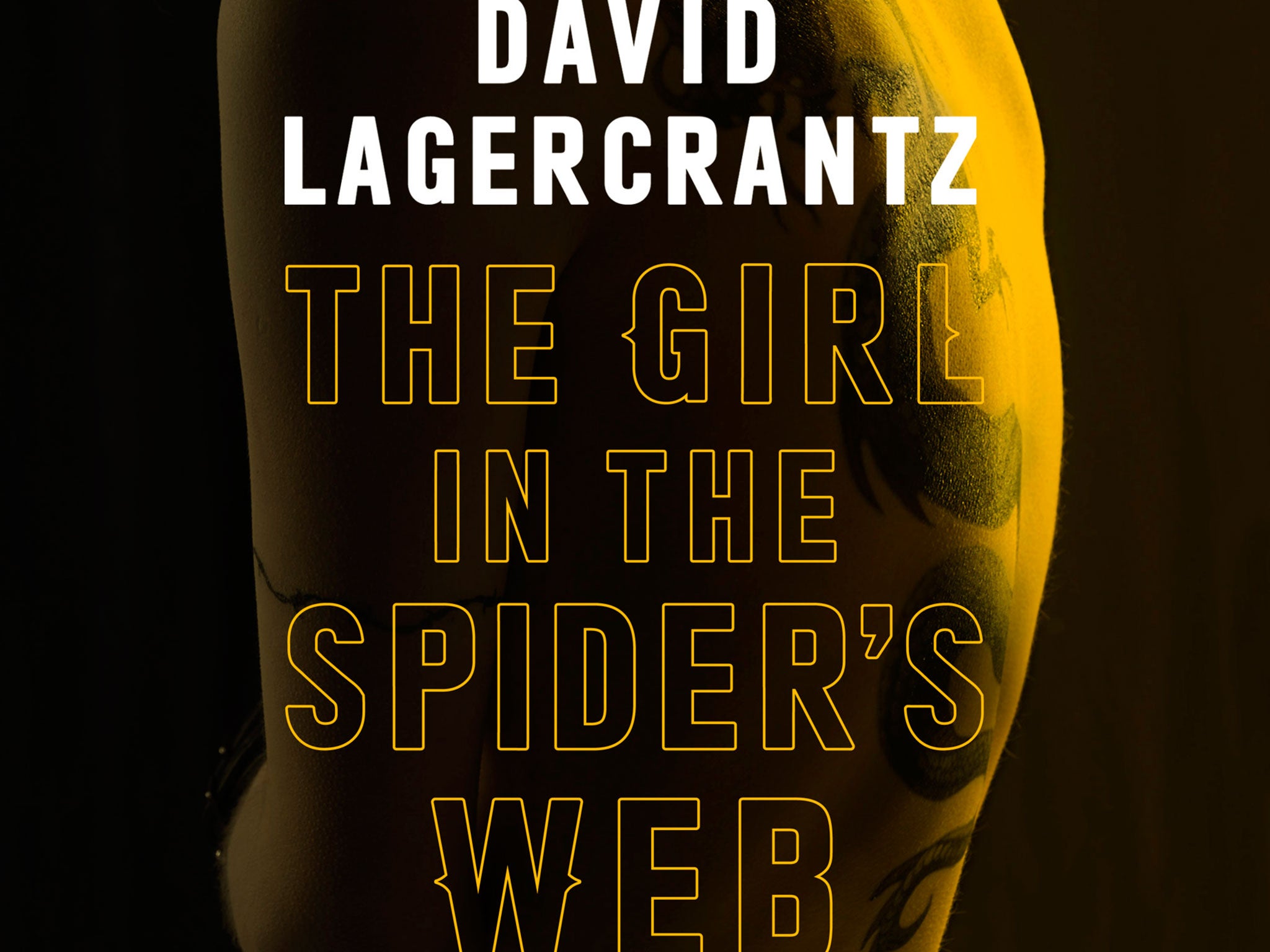Why Lisbeth's return is stirring up a hornet's nest; Week in Books

So now we know the title of the fourth Millennium novel. And we've seen the dust-jacket (a variation on the tattooed torso that featured on the previous three).MacLehose Press revealed both titbits ceremoniously – the novel, they told us, had already been acquired for translation by 38 publishers. And the Swedish author would not be giving interviews until close to the August publication of The Girl in the Spider’s Web.
Not the late Stieg Larsson, of course, but David Lagercrantz (also a journalist and acclaimed writer in Sweden). They’re right to treat this as an “event publication”; the trilogy has been big business, film spin-offs notwithstanding. They must know the impact this will have on fans.
They might also have had an inkling of the hornet’s nest (pardon the pun) that a fourth instalment written by someone who is not Larsson, would stir. Barry Forshaw, The Independent’s crime reviewer and the first biographer of Larsson, who will speak with Christopher MacLehose at the Harrogate Crime Festival in July, said opinion on social media was “divided evenly between ‘Terrific news – can’t wait for it!’ and ‘A catchpenny exercise designed to extract more money from the franchise – and it isn't even that unfinished fourth book by Larsson himself’.” Larsson’s widow, Eva Gabrielsson, spoke out against the release of That Which Does Not Kill (its Swedish title). For her, “This is about money”.
If that’s the case, it wouldn’t be a first. Think of the now routine project of asking guest authors to write such “posthumous” sequels, from James Bond (Kingsley Amis, Sebastian Faulks, William Boyd) and Jeeves and Wooster (Faulks again), to Daphne du Maurier’s Rebecca (Susan Hill), Jane Austen’s oeuvre (take your pick from six prominent authors behind the Austen Project) and Sherlock Holmes (Anthony Horowitz), to name a few.
What “posthumous” refers to here is the death of the author, not the death of whichever beloved protagonist – be it Austen’s Elizabeth or Larsson’s Lisbeth. If fictional characters were already immortal beings, kept alive, in aspic language, plot and style, by generation after generation of readers in whose time-travelling imaginations they are reborn, this might be seen as an extension of that concept: the mortal author may die, but the character has a right to live on? Hmm, but on what terms?
Sophie Hannah and Joanna Trollope spoke about writing such sequels at a literary festival in Dubai last month (Hannah on Agatha Christie’s Poirot; Trollope on Jane Austen’s Sense and Sensibility), and the navigation between their own invention and their tribute to the writer whose hallowed creations they take on.
The fact that these sequels sell well is testimony to our desire to have these characters’ return, silver hairs emerging along their temples. Publishers know this, and so do marketing departments, and maybe, as Eva suggests, that’s the problem –the perception of these characters as “brands”, which brings us back to that quote about money.
To my mind, there’s nothing much wrong in making money if it’s made from a good book, so my discomfort isn’t over this. Go to Larsson’s fan website, stieglarsson.com, and you’ll be given the update that “he’s back” in August. In some creepy sense, the website (created in 2007, three years after his death) is a little like those Facebook accounts or online noticeboards that continue their activity, impervious, in their virtual bubbles, to the death of their real counterpart.
Can’t we accept, when an author dies, that the story stops there? Will a character as loved as Harry Potter return one day, when JK Rowling is long gone, to fight demons as he collects his pension, despite her preference to call it a day at the seventh? Will Rowling be surplus to requirements?
Larsson’s Estate released a statement saying that Lagercrantz’s reprisal would “keep alive the characters.” It’s true, though maybe not in the way Larsson might have wanted. That may not be important to Lisbeth fans if Lagercrantz succeeds in bringing her fulsomely enough back to life, and making her psychology as compelling as Larsson did.
Yet I would return to the fact that these rebooted sequels, as a growing generic group, show a fundamental lack of imagination because they must, by their very nature, honour the conventions that the late writer laid down. How much invention is permissible within this stricture? And in our Starbucks-riven age of franchises, these sequels follow the same old ragged trend.
Join our commenting forum
Join thought-provoking conversations, follow other Independent readers and see their replies
Comments
Bookmark popover
Removed from bookmarks